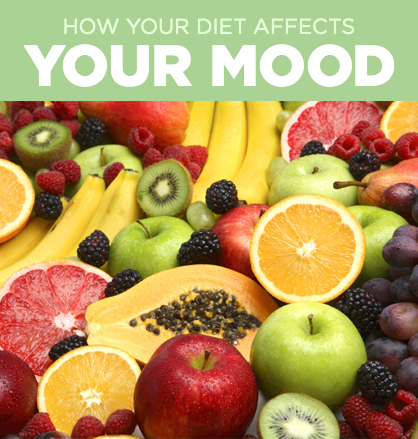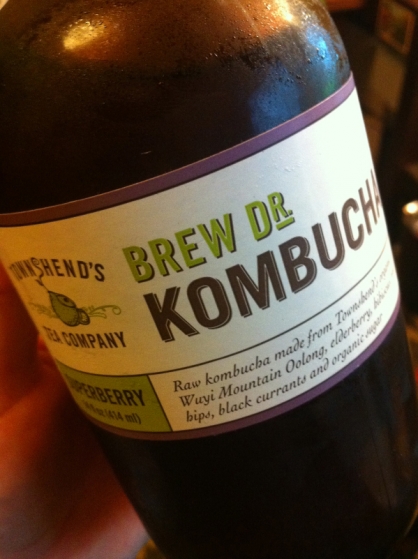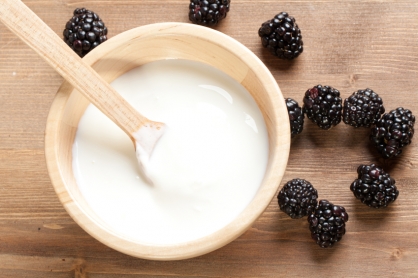Diet’s Astonishing Impact on Mood
Food and mood are linked together
New research shows that when you eat something, it impacts your mood. So what you put into your stomach matters because it has a significant impact on your brain activity.
Scientists are focusing on psychobiotics, which are a type of bacteria found in certain foods that can produce and deliver chemicals such as serotonin to the brain. Depression and anxiety can actually be treated by diet in some instances.
A recent UCLA study found that women who ate yogurt with probiotics twice a day for a month had distinct changes in the part of their brain related to emotions. Another study, from the University College Cork in Ireland, showed that depressed rats were more active and their immune systems improved after ingesting a particular bacteria, bifidobacterium infantis.
The changes are due to the connection between our brain and the billions of microorganisms that live in our digestive system. Bacteria can enhance the performance of mood-lifting neurotransmitters in the brain.
Research is preliminary, but our experts share their thoughts on this important subject.


Improving mood
Psychobiotics are an exciting area for improving mood, both anxiety and depression, according to Trudy Scott, a food mood expert and certified nutritionist and author of The Antianxiety Food Solution – How the Foods You Eat Can Help you Calm Your Anxious Mind, Improve Your Mood and End Cravings.
“I work with anxious women and I see it helping my clients on a daily basis. I am so thrilled to see the science catching up with what traditional diets have included for centuries – fermented foods and beverages like sauerkraut and other fermented vegetables like kimchi, yogurt and kefir, and kombucha,” Scott said.
Scott talked to Dr. Ted Dinan, MD, Ph.D., and professor of psychiatry at University College Cork during an anxiety summit last fall.
Dinan was one of the researchers who coined the term psychobiotics in the paper Psychobiotics: A Novel Class of Pyschotropics.
“This quote from the paper says it all: 'In the 20th century the major focus of microbiological research was on finding ways to kill microbes by antibiotics. This century the focus has changed somewhat with the recognition of the health benefits of bacteria, not just from an immunity perspective but from a mental health one.'”
“During our interview he shared how, 'our brains, in particular, are very dependent on many different components that bacteria within our gut actually produce.' And how a certain bacteria called bifidobacteria can actually manufacture tryptophan, the precursor of serotonin, a brain chemical that very important formaintaining normal mood and eliminating anxiety,” Scott said.
The paper stated, “In the human brain we have very little capacity for storing tryptophan and we need a constant dietary supply of tryptophan,” and having good levels of bifidobacteria in our gut can help provide this, Scott said.
“Other strains like lactobacillus rhamnosus have been found to have significant anti-anxiety effects and this is a far more preferable approach to taking a medication like a benzodiazepine which is very addicting, has horrible side-effects, and even worse withdrawal symptoms for many people,” she said.

Benefits of probiotics
The wide variety of functions of probiotics are just beginning to be understood, said Rene Ficek, a registered dietician and lead nutrition expert at Seattle Sutton's Healthy Eating.
“There are over 100 trillion bacteria in the body, most of them in the gut and most of them supporting such essential functions as digestion, immunity, metabolism, even mental health,” Ficek said.
“Research is starting to focus on how species of gut flora can treat depression,” she said. “While there are a large number of probiotics in the system, only a small percentage are thought to have an impact on behavior. These organisms in the gut are psychoactive and have potential benefit to those suffering from psychiatric illness. More and more studies are suggesting that there may be a very real link between probiotics, mood, and the brain. This connection may have a lot to do with the psychobiotics ability to reduce inflammation, which has previously been linked with depression and a host of other disorders.”
Including probiotics daily may be easier than you think.
If you're interested in adding them to your routine, make sure your yogurt says that it contains “live and active” yogurt cultures, as most do. Regardless of their probiotic qualities, low-fat dairy products can be part of a healthy diet. Other items that naturally contain probiotics include kombucha, miso soup, pickles, tempeh, and sauerkraut. Over time, you may find that your gut and your brain feel a difference, Ficek said.
Tagged in: wellness, depression, mood, probiotics,



